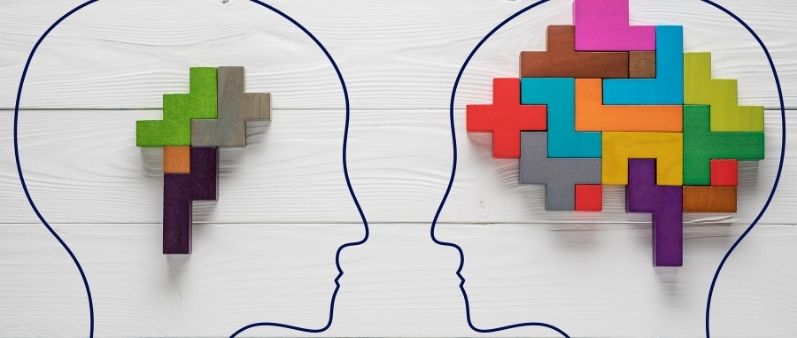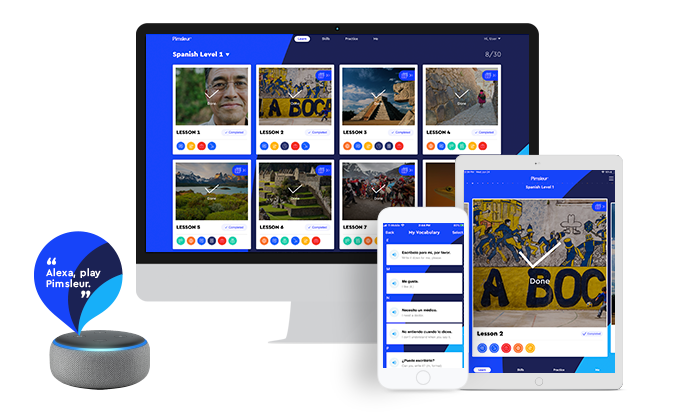
Get Smarter! What Happens To Your Brain When You Learn a Language
The Extraordinary Benefits of Learning a Language
Learning a language is challenging and it takes a ton of time. Years, usually. If you’ve already started learning a second language, then you know how much effort it takes. At times it can feel like pushing a jeep up a hill.
According to the US Foreign Service Institute, learning even the “easiest” languages can take more than 600 hours before a student is fluent. That’s a lot of time you could’ve been watching Modern Family.
So why learn a language? Especially when translators are so good?
Well, there’s actually a lot more that we get from learning a language than just the language. Learning a language can change your brain, your career, and even your love life. Here’s our narrowed down list with just some of the amazing benefits of learning a language.
Learning a language is difficult and it requires a huge investment of time and effort. So why learn?

12 Life-Changing Benefits of Learning a Language
1. Learning a Language Makes You Smarter
The benefits of learning a language on your brain are well-documented by scientists. According to one study from the University of Edinburgh, studying a second language increases intelligence as well as both verbal and reading fluency—even when the language is learned as an adult.
It also seems to stimulate areas of the brain associated with attention and capacity to concentrate. Other research has found that knowing another language boosts memory, critical thinking, and even problem-solving ability.
2. Learning a Language Helps Your Career
In an increasingly globalized world, being able to speak, listen, understand, and negotiate in another language could help your resume stand out. A second language can increase your chances of finding good jobs and may help you earn a higher salary.
Those who take advantage of a second language to travel and get to know other cultures develop soft skills highly valued by employers.
And since interpretation and translation jobs are expected to grow significantly, your second language could be a boon for your career.
3. Learning a Language Protects Your Brain
Learning a language is a great exercise for your brain. And exercise is important to keep it healthy.
Thanks to neuroplasticity, a second language can functionally and physically reconfigure the structure of our brains. This helps keep it from declining with age. In one study, researchers found that being bilingual helps to delay the onset of Alzheimer’s disease, vascular dementia, and frontotemporal dementia. The researchers estimate that bilingualism can delay Alzheimer’s disease by 4.5 years.
Nearly 5 million people are affected by Alzheimer’s disease in the U.S., and estimates suggest that this number will triple by 2060. Learning a language can be a great way to protect yourself by keeping your brain more active and healthy. (And don’t worry, you’re never too old to learn a language!)
4. Learning a Language Makes You More Creative
Being bilingual sparks your creativity. The reason is simple: mastering a second language puts you in constant contact with other cultures, people, and different ways of seeing the world. When you speak a different language, you have to get used to actually thinking differently.
A 2012 study provided some evidence for this: the researchers observed that bilingual children scored higher on tasks measuring creativity and were better at solving problems than their monolingual peers.
Simply put: a second language inspires you to think in new, innovative ways.
5. Learning a Language Makes You Sexier
If you’re single, or perhaps interested in spicing up your relationship, language learning is for you.
According to a study conducted in 2017, 71% of the 3,000 Americans interviewed in the survey reported that they find bilingual people sexier than monolingual people.
If you are thinking about learning French, consider this one more reason to get started: according to the survey, French is the sexiest language of all.
6. A Language Can Help You Travel
Learning a language can help you travel more safely. Not knowing the basics could get you in trouble, even if you are great at using Google translator. Knowing how to greet others and some of the most common phrases to use in an emergency could save your trip.
7. Language Learning Helps Your Social Life
Bilinguals have the unique opportunity to communicate with a wider range of people in their personal and professional lives.
Picture yourself at a hostel in Budapest. You’ll get way more out of the experience—and be much more likely to make friends—if you can speak Hungarian.
You don’t even have to travel to boost your social life with a second language. You can use applications like HelloTalk, HiNative, or Tandem, to build friendships with natives from wherever you are.
Plus, research suggests that learning a language improves your communication skills in your own native language. So learning a foreign tongue might actually have a better social life at home, too.
8. It Makes You a Better Cook
We’ve discussed in other articles how cooking and wine can help you to study a language, and I personally cannot think of a more delicious way to study. Learning a language should not be stressful or boring; on the contrary, the best results come when you build your language learning program around your interests and passions.
Studying recipes in a new language will simultaneously improve your vocabulary and make you a more sophisticated cook.
9. A New Language Can Improve Your Love Life
One of the best ways to maintain a long, healthy, and passionate relationship is by doing new and challenging activities together. And what is more novel and challenging than learning a new language? By the end, you’ll not only have developed your communication skills but you’ll have grown closer to your partner in the process.
Learning a language is also the perfect excuse to plan a romantic trip to spice things up even more.
10. Language Learning Teaches You About Other Cultures and Makes You More Empathetic
There’s a Czech proverb that goes, “As many languages you know, as many times you are a human being.”
Learning a language isn’t just about the language; it is also connecting to other people and cultures. Discovering new vocabulary puts you in touch with a society’s entire history—its traditions, religions, arts, and more.
A greater understanding of a peoples’ history promotes greater tolerance and acceptance of others and, consequently, can help you to be more empathetic.
11. It Can Sharpen Your Decision Making
Studies find that people who speak more than one language can be more motivated by reason than those who speak only one language. Not just that, but these studies suggest that connections formed in the brain to find quick answers in everyday communication in a second language also seem to sharpen problem-solving skills.
12. It Challenges You
I think this might be my favorite benefit of learning a language: it’s challenging.
Why is being challenged a benefit of language learning? Because it teaches you about yourself—you never know what you´re capable of until you test your own limits.
When you learn a new language, especially when you do it alone, you are engaging in a kind of self-inquiry. What do I want to know? How can I learn it? How far have I come?
There’s something magical about learning a language—and mastering it—that can help us develop self-knowledge. In the long, language learning can make us more confident and courageous in overcoming future challenges.
Last Thoughts
Learning a language can really change your life. It may allow you to understand people who are different from you, provides opportunities for a deep connection to new places and cultures, and develop empathy. A better job, better social life, and a lower likelihood of developing dementia aren’t bad side effects either.
The Effort Required to Learn a Language is High, But So Are The Rewards
So get started! Test Drive a Free Pimsleur lesson today. Or, start your Free 7-Day Trial with full access to any language in our suite. Afterward, pay only $19.95 per month.

1 Comment for "Get Smarter! What Happens To Your Brain When You Learn a Language"